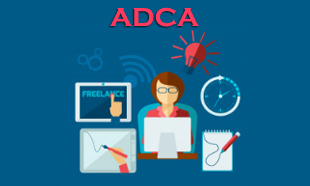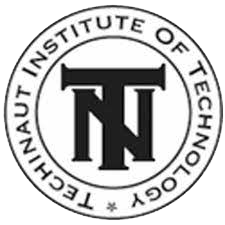0
TECHINAUT INSTITUTE OF TECHNOLOGY TECHINAUT INSTITUTE OF TECHNOLOGY present ADVANCE DIPLOMA IN COMPUTER APPLICATION offline or classroom computer course in …
TECHINAUT INSTITUTE OF TECHNOLOGY present ADVANCE DIPLOMA IN COMPUTER APPLICATION offline or classroom computer course in association with our Computer Institute Franchises NAINS ENTREPRENEUR SKILL DEVELOPMENT INSTITUTE located in KALAMBOLI, KALAMBOLI PANVEL, MAHARASHTRA. TECHINAUT provide Best Computer Institute Franchises services near your locality. NAINS ENTREPRENEUR SKILL DEVELOPMENT INSTITUTE is one of the best computer courses provide in KALAMBOLI PANVEL, MAHARASHTRA.
NAINS ENTREPRENEUR SKILL DEVELOPMENT INSTITUTE
NAINS ENTREPRENEUR SKILL DEVELOPMENT INSTITUTE is TECHINAUT INSTITUTE OF TECHNOLOGY computer center franchises located in KALAMBOLI, KALAMBOLI PANVEL, MAHARASHTRA, INDIA, PIN 410218. To know more about our IT training center and computer courses at on our study center, please visit us on the given address or email us on nainshank@gmail.com or info@techinaut.edu.in
ABOUT THE “ADVANCE DIPLOMA IN COMPUTER APPLICATION” SYLLABUS
This is a revised and updated version of TECHINAUT INSTITUTE OF TECHNOLOGY syllabus of ADVANCE DIPLOMA IN COMPUTER APPLICATION. This ADVANCE DIPLOMA IN COMPUTER APPLICATION syllabus is designed to facilitate students in the development of a concept-based approach for problem-solving using IT as a tool.
THE OBJECTIVE OF THE COURSE
The goal of this course is to present an overview of IT tools used in day to day use of computers and database operations. The Course has been designed to provide knowledge on various hardware and software components of the computer, operating system, various packages used for different applications, database concepts & operations and various issues related to IT and application of IT.
TABLE OF CONTENT
SECTION 1: BASIC OF COMPUTER (15 HRS)
a. Fundamentals of Computer: History of Computer, Generation of Computer, I/O Devices, Number System. b. Operating System: DOS, Windows, Paint, Notepad, WordPad.
SECTION 2: COMPUTER APPRECIATION (15 HRS)
a. Characteristics of Computers, Input, Output, Storage units, CPU, Computer System, Binary number system, Binary to Decimal Conversion, Decimal to Binary Conversion, ASCII Code, Unicode.
SECTION 3: COMPUTER ORGANIZATION (20 HRS)
a. Central Processing Unit: Processor Speed, Cache, Memory, RAM, ROM, Booting.
b. Memory: Secondary Storage Devices: Floppy and Hard Disks, Optical Disks CD-ROM, DVD.
c. Mass Storage Devices: USB thumb drive. Managing disk Partitions, File System Input. Devices: Keyboard, Mouse, joystick, scanner, webcam.
d. Printers: Dot matrix, inkjet, laser.
e. Multimedia: What is Multimedia, Text, Graphics, Animation, Audio, Images, Video; Multimedia Application in Education, Entertainment, Marketing. Names of common multimedia file formats.
f. Computer Software: Relationship between Hardware and Software; System Software, Application Software, Compiler, names of some high-level languages, free domain software.
SECTION 4: OPERATING SYSTEM (20 HRS)
a. Microsoft Windows: An overview of different versions of Windows, Basic Windows elements, File management through Windows. b. Using essential accessories. c. System tools: Disk cleanup, Disk defragmenter, Entertainment, Games, Calculator. d. Imaging: Fax, Notepad, Paint, WordPad. e. Command Prompt: Directory navigation, path setting, creating and using batch files. Drives, files, directories, directory structure. f. Application Management: Installing, uninstalling, Running applications. g. Linux: An overview of Linux. h. Basic Linux elements: System Features, Software Features, File Structure. i. File handling in Linux: H/W, S/W requirements, Preliminary steps before installation, specifics on Hard drive repartitioning and booting a Linux system.
SECTION 5: WORD PROCESSING (30 HRS)
a. Word processing concepts: Saving, Closing, Opening an existing document, Selecting text, Editing text, Finding and Replacing text, Printing Documents, Creating and Printing Merged Documents, Character and Paragraph Formatting, Page Design and Layout. b. Editing and Profiling Tools: Checking and correcting spellings. Handling Graphics, Creating Tables and Charts, Document Templates and Wizards.
SECTION 6: SPREADSHEET PACKAGE (50 HRS)
a. Spreadsheet Concepts, Creating, Saving and Editing a Workbook, Inserting, Deleting Work Sheets, entering data in a cell/formula Copying and Moving from selected cells, handling operators in Formulae. b. Functions: Mathematical, Logical, statistical, text, financial, Date and Time functions, Using Function Wizard. c. Exploring Microsoft Excel: Creating Workbook Files, Getting Help While You Work. d. Viewing Navigating and Managing Worksheets and Workbooks: Viewing Worksheets, Navigating Worksheets and Workbooks, Managing Worksheets and Workbook Files. e. Editing Worksheets: Creating Basic Formulas, Editing Text and Values, Clearing, Moving, and Copying Cell Content, Modifying Worksheet Structure. f. Using Functions in Formulas: Understanding Functions, Using Functions, Using Statistical Functions, Using Date and Time Functions. g. Formatting Worksheets: Formatting Cells and Cell Content, Formatting Worksheets. changing data alignment, changing the date, number, character or currency format, changing the font, adding borders and colors, Printing worksheets, Charts, and Graphs Creating, Previewing, Modifying Charts.Integrating word processor, spreadsheets, web pages. h. Preparing and Printing Worksheets: Preparing Worksheets for Printing, Using Find and Replace, Previewing and Printing Worksheets.
SECTION 7: PRESENTATION PACKAGE (30 HRS)
a. Creating, Opening and Saving Presentations, Creating the Look of Your Presentation, Working in Different Views, Working with Slides, Adding and Formatting Text, Formatting Paragraphs, Checking Spelling and Correcting Typing Mistakes, Making Notes Pages and Handouts, Drawing and Working with Objects, Adding Clip Art and other pictures, Designing Slide Shows, Running and Controlling a Slide Show, Printing Presentations.
SECTION 8: INFORMATION TECHNOLOGY AND SOCIETY (10 HRS)
a. Indian IT Act, Intellectual Property Rights issues. b. Application of Information Technology in Railways, Airlines, Banking, Insurance, Inventory Control, Financial systems, Hotel Management, Education, Video games, Telephone exchanges, Mobile phones, Information kiosks, special effects in movies.
SECTION 9: INTRODUCTION TO INTERNET (10 HRS)
a. Internet, Growth of the Internet, Owners of the Internet, Anatomy of the Internet, ARPANET and Internet history of the World Wide Web, basic Internet Terminology, Net etiquette. b. Internet Applications: Commerce on the Internet, Governance on the Internet. c. Impact of the Internet on Society: Crime on/through the Internet.
SECTION 10: INTERNET NETWORK (10 HRS)
a. Network definition b. Common terminologies: LAN, WAN, Node, Host, Workstation, bandwidth, Interoperability, Network administrator, network security. c. Network Components: Severs, Clients, Communication Media, Types of the network: Peer to Peer, Clients Server, Addressing on the Internet: DNS, Domain Name and their organization, understanding the Internet Protocol Address. Network topologies: Bust, star, and ring, Ethernet, FDDI, ATM, and Intranet.
SECTION 11: ELECTRONIC MAIL (20 HRS)
a. Email Networks and Servers b. Email protocols: SMTP, POP3, IMAp4, MIME6, Structure of an Email – Email Address, Email Header, Body and Attachments. c. Email Clients: Netscape mail Clients, Outlook Express, Web-based E-mail. d. Email encryption: Address Book, Signature File.
SECTION 12: INTRODUCTION TO PROGRAMMING (10 HRS)
a. The Basic Model of Computation, Algorithms, Flow-charts, Programming Languages, Compilation, Linking and Loading, Testing and Debugging, Documentation.
SECTION 13: ALGORITHMS FOR PROBLEM SOLVING (20 HRS)
a. Exchanging values of two variables, summation of a set of numbers, Decimal Base to Binary Base conversion, Reversing digits of an integer, GCD (Greatest Common Division) of two numbers, Test whether a number is prime, Organize numbers in ascending order, Find square root of a number, factorial computation, Fibonacci sequence, Evaluate ‘sin x’ as sum of a series, Reverse order of elements of an array, Find largest number in an array, Print elements of upper triangular matrix, multiplication of two matrices, Evaluate a Polynomial.
Lectures = 260 HRS Practical/Tutorials = 260 HRS Total = 520 HRS


